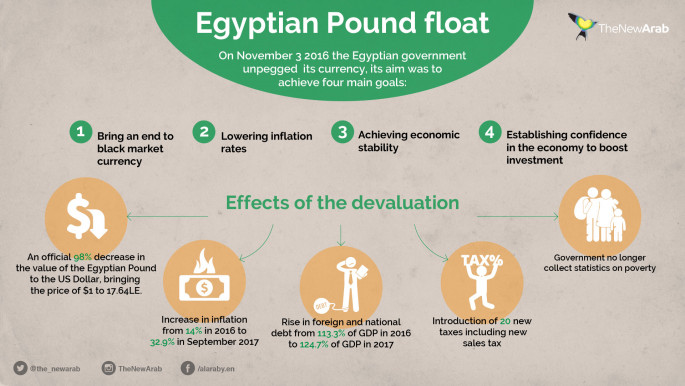
Dear Egypt: #WeNeedToTalk about Sisi's track record
Last week, Egypt hosted the World Youth Forum, a platform – its website claims – built by promising youth. Held "under the auspices of his excellency, President Sisi", the forum offers to engage youth from around the globe and give them the opportunity to "express their views".
The forum promised the youth the chance to "engage with top policy-makers in the region and network with promising youth from the region and the world that are determined to create change."
In an irony, not lost to many, the marketed hashtag for the event was: #WeNeedToTalk.
Egyptians were quick to take over the hashtag designed to promote the conference, by calling out the Egyptian government on its hypocritical sponsoring of an international event designed to amplify youth voices while silencing their own.
Egypt, we do need to talk. We need to talk about the 60,000 unjustly detained in Sisi's cells. We need to talk about how enforced disappearances have become a key instrument of state policy in Egypt.
NGOs report three to four people disappearing a day, and more often than not, the target are children and students. Picked up from schools and on the streets, children turn up dead, in prison, and in some cases, don’t turn up at all. The Egyptian Commission for Rights and Freedoms found that 378 individuals, were forcibly disappeared in Egypt in just one year (August 2016 -2017)
Twitter Post
|
Thousands have been imprisoned under the protest law, a law that bans the public gathering of 10 or more people without prior authorisation from the interior ministry – one that appears to not be in place when pro-government rallies are called for.
Alaa Abd El-Fattah, a leading dissident voice, is currently serving a five year prison sentence on charges related to the protest law, of which he has already served three and a half years.
Since President Sisi came to power, there have been thirteen new prisons built, bringing the total number of detention centres in Egypt to a shocking 504.
It is only in Egypt perhaps where the president simultaneously calls on the youth to discuss their concerns while burying them behind walls of concrete. In a country of contradictions, youth are imprisoned in a prison called 'the future' while being promised a forum to 'create change'.
In the prisons, the torture epidemic is nothing short of 'crime against humanity'. Human Rights Watch found that Egypt’s regular police and national security officers routinely torture political detainees with techniques including beatings, electric shocks, stress positions, and sometimes rape.
Security forces in Egypt enjoy a culture of near total impunity, allowing for the widespread and systematic torture present in Sisi’s cells.
Absence of accountability
Rehabilitation centre, El Nadeem, which helps victims of violence and torture was closed down in February. Belady, an organisation dedicated to helping street children, was also closed down and its founders arrested. The closures follow a wider crackdown after the NGO law was passed last year. The bill states that all centres of all types would need to re-register under the ministry of social affairs, putting all NGOs directly under minister supervision.
Free media in Egypt is a myth. But just in case you had any doubt, and to make sure all angles are covered, President Sisi signed off the creation of the Supreme Council for the Administration of the Media. Press licenses can be revoked by the council, and media organisations can be fined or suspended at the whim of the government.
When Sisi swept into power, he promised economic stability and social security. He repeated empty platitudes about how much he values the youth – but now four years on, has failed to deliver on either of the promises.
Economically, Egypt is not faring well. Over a quarter of the population lives in poverty, and in Upper Egypt, the figure reaches as high as 60%. Across the youth spectrum, figures are no more promising; unemployment is widespread at 26%, nearly ten per cent higher than the global average.
Inflation has doubled, foreign and national debt risen to 124.7% and the Egyptian pound devalued 98%.
Even more dire – 70% of unemployed youth hold academic degrees. The clear skill mismatch only exacerbates the employment gap, and offers youth the promise of nothing more than a bleak future.
The youth have been ready to talk for a long time – it's just no one wants to listen.





 Follow the Middle East's top stories in English at The New Arab on Google News
Follow the Middle East's top stories in English at The New Arab on Google News


